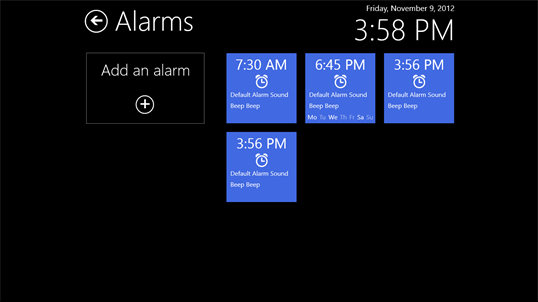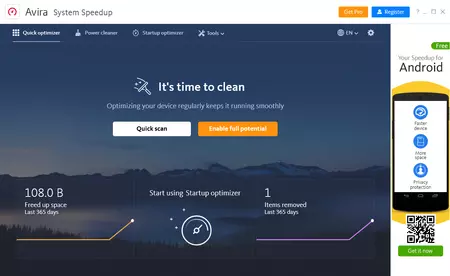LAPTOPS & 2 IN 1s ON AMAZON.COM. Choosing a laptop computer that's right for you shouldn't be difficult. Whether you're a gamer, a designer, a student, or simply need a laptop for everyday tasks and browsing, Amazon makes it easy to search and compare between traditional laptops and convertible 2 in 1s, so you can be more productive. Gamers need a sturdy, powerful laptop. Explore a variety of gaming laptops with high-end processors and graphics that are on par with your traditional desktop computers. If you are in two minds about choosing a laptop or a tablet, go for a 2-in-1 model. You can use it as a tablet that flips into a laptop when you want.
LAPTOPS & 2 IN 1s ON AMAZON.COM. Choosing a laptop computer that's right for you shouldn't be difficult. Whether you're a gamer, a designer, a student, or simply need a laptop for everyday tasks and browsing, Amazon makes it easy to search and compare between traditional laptops and convertible 2 in 1s, so you can be more productive. Microsoft - Surface Laptop Go - 12.4' Touch-Screen - Intel 10th Generation Core i5 - 8GB Memory - 128GB Solid State Drive - Sandstone SKU: 6428997 User rating, 4.4 out of 5 stars with 145 reviews.
- Bass booster download for windows 10
Most people looking for Bass booster for windows 10 downloaded:
DownloadSyncersoft & Softrave presents BassBooster VST 1.2 Bass Booster is revolutionary plugin that enriches bass ...
DownloadLetasoft Sound Booster can amplify sound of Windows applications including media players, games, browsers, and Skype.
DownloadMake Winamp player sound better with 3D surround sound, higher fidelity, and bass boost.
DownloadBoost bass or treble frequencies, cut bass or treble frequencies, convert to lossless audio formats FLAC, Wav or Mp3.
DownloadFacebook Desktop Download Windows 10
Designed to help optimize your PC for smoother, more responsive game play in the latest PC games with the touch of ...
Similar choice
Debian does not impose hardware requirements beyond the requirementsof the Linux or kFreeBSD kernel and the GNU tool-sets. Therefore, anyarchitecture or platform to which the Linux or kFreeBSD kernel, libc,gcc, etc. have been ported, and for which a Debianport exists, can run Debian. Please refer to the Ports pages athttps://www.debian.org/ports/amd64/ formore details on 64-bit PC architecture systems which have beentested with Debian GNU/Linux.
Rather than attempting to describe all the different hardwareconfigurations which are supported for 64-bit PC , this sectioncontains general information and pointers to where additionalinformation can be found.
Debian GNU/Linux 10 supports ten major architectures and severalvariations of each architecture known as “flavors”.
| Architecture | Debian Designation | Subarchitecture | Flavor |
|---|---|---|---|
| Intel x86-based | i386 | default x86 machines | default |
| Xen PV domains only | xen | ||
| AMD64 & Intel 64 | amd64 | ||
| ARM | armel | Marvell Kirkwood and Orion | marvell |
| ARM with hardware FPU | armhf | multiplatform | armmp |
| 64bit ARM | arm64 | ||
| 32bit MIPS (big-endian) | mips | MIPS Malta | 4kc-malta |
| Cavium Octeon | octeon | ||
| 64bit MIPS (little-endian) | mips64el | MIPS Malta | 5kc-malta |
| Cavium Octeon | octeon | ||
| Loongson 3 | loongson-3 | ||
| 32bit MIPS (little-endian) | mipsel | MIPS Malta | 4kc-malta |
| Cavium Octeon | octeon | ||
| Loongson 3 | loongson-3 | ||
| Power Systems | ppc64el | IBM POWER8 or newer machines | |
| 64bit IBM S/390 | s390x | IPL from VM-reader and DASD | generic |
This document covers installation for the 64-bit PCarchitecture using the Linux kernel.If you are lookingfor information on any of the other Debian-supported architecturestake a look at theDebian-Ports pages.
Both AMD64 and Intel 64 processors are supported.
From a technical point of view, laptops are normal PCs, so all informationregarding PC systems applies to laptops as well. Installationson laptops nowadays usually work out of the box, including things likeautomatically suspending the system on closing the lid and laptop specfichardware buttons like those for disabling the wifi interfaces (“airplanemode”). Nonetheless sometimes the hardware vendors use specialized orproprietary hardware for some laptop-specific functions whichmight not be supported. To see if your particular laptop works wellwith GNU/Linux, see for example theLinux Laptop pages.
Multiprocessor support — also called “symmetricmultiprocessing” or SMP — is available for this architecture.The standard Debian 10 kernel image has been compiled withSMP-alternatives support. This means that the kernelwill detect the number of processors (or processor cores) and willautomatically deactivate SMP on uniprocessor systems.

Having multiple processors in a computer was originallyonly an issue for high-end server systems but has become common inrecent years nearly everywhere withthe introduction of so called “multi-core” processors. These containtwo or more processor units, called “cores”, in one physical chip.
Debian's support for graphical interfaces is determined by theunderlying support found in X.Org's X11 system, and the kernel. Basicframebuffer graphics is provided by the kernel, whilst desktopenvironments use X11. Whether advanced graphics card features such as3D-hardware acceleration or hardware-accelerated video are available,depends on the actual graphics hardware used in the system and in somecases on the installation of additional “firmware” images(see Section 2.2, “Devices Requiring Firmware”).
On modern PCs, having a graphical display usually works out of thebox. In very few cases there have been reports about hardware onwhich installation of additional graphics card firmware was requiredeven for basic graphics support, but these have been rare exceptions.For quite a lot of hardware, 3D acceleration also works well out ofthe box, but there is still some hardware that needs binary blobs towork well.
Details on supported graphics hardware and pointing devices can be found athttps://wiki.freedesktop.org/xorg/. Debian 10 shipswith X.Org version 7.7.

Almost any network interface card (NIC) supported by the Linux kernelshould also be supported by the installation system; driversshould normally be loaded automatically.This includes most PCI/PCI-Express cards as well asPCMCIA/Express Cards on laptops.

ISDN is supported, but not during the installation.
Wireless networking is in general supported as well and a growing number ofwireless adapters are supported by the official Linux kernel, although manyof them do require firmware to be loaded.
If firmware is needed, the installerwill prompt you to load firmware. See Section 6.4, “Loading Missing Firmware”for detailed information on how to load firmware during the installation.
Wireless NICs that are not supported by the official Linux kernel can generallybe made to work under Debian GNU/Linux, but are not supported during the installation.
If there is a problem with wireless and thereis no other NIC you can use during the installation, it is stillpossible to install Debian GNU/Linux using a full CD-ROM or DVD image. Select theoption to not configure a network and install using only the packagesavailable from the CD/DVD. You can then install the driver and firmware youneed after the installation is completed (after the reboot) and configureyour network manually.
In some cases the driver you need may not be available as a Debian package.You will then have to look if there is source code available in the internetand compile the driver yourself. How to do this is outside the scope of thismanual.If no Linux driver is available, your last resort is touse the ndiswrapper package, which allows you to usea Windows driver.
Buster Laptops For Gaming
Support for braille displays is determined by the underlying supportfound in brltty. Most displays work underbrltty, connected via either a serial port, USBor bluetooth. Details on supported braille devices can be found on thebrltty website.Debian GNU/Linux 10 ships with brltty version5.6.
Support for hardware speech synthesis devices is determined by theunderlying support found in speakup.speakup only supports integrated boards andexternal devices connected to a serial port (no USB, serial-to-USB or PCIadapters are supported). Details on supported hardware speech synthesisdevices can be found on thespeakup website.Debian GNU/Linux 10 ships with speakup version3.1.6.
Linux supports a large variety of hardware devices such as mice,printers, scanners, PCMCIA/CardBus/ExpressCard and USB devices. However, most of thesedevices are not required while installing the system.
USB hardware generally works fine. On some very old PC systems someUSB keyboards may require additional configuration (see Section 3.6.5, “Hardware Issues to Watch Out For”).On modern PCs, USB keyboards and mice work without requiring anyspecific configuration.
